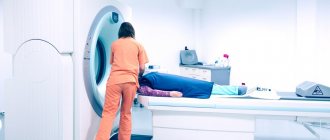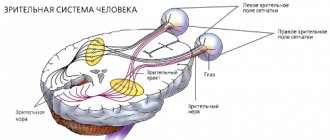Central nervous system degeneration is irreversible organic and functional changes in the spinal cord and brain that lead to mental degeneration. There are many types of diseases, the consequences of which are disturbances in the functioning of the nervous system. Accordingly, treatment will depend on the type of disease and the causes that cause it. Unfortunately, not all diseases of the central nervous system are treatable. Successful therapy for degenerative diseases of the central nervous system is performed at the Yusupov Hospital.
Degenerative diseases of the central nervous system: general concepts
The main characteristics of the group of degenerative diseases of the central nervous system are the following criteria:
- diseases begin unnoticed; before their appearance, the nervous system could function absolutely normally;
- diseases have a gradually progressive course and can last for years or decades;
- some degenerative diseases are associated with hereditary factors and develop in several members of the same family;
- a neurodegenerative disease of the central nervous system is characterized by the gradual death of neurons and their replacement by glial elements;
- atrophic processes at the initial stage of pathology development occur in a specific area of one of the cerebral hemispheres; further, during the advanced stage of degeneration, atrophy in the brain becomes almost symmetrical.
Various diseases of the central nervous system, the list of which is quite long, remain under study. The reasons for the occurrence of atrophic processes during the normal functioning of the nervous system for most of a person’s life are not reliably known. However, there are a number of factors that can trigger brain degeneration:
- alcohol abuse, drug addiction;
- toxic effects of pesticides and herbicides;
- meningococcal infection;
- viral encephalitis;
- deficiency of vitamin B12 and folic acid.
Symptoms of damage to the central nervous system
- Speech disorders. There is a late development of speech, a poor vocabulary, and in severe cases, a complete absence of speech skills: children with this type of central nervous system damage are able to pronounce only sounds and some single words.
- Motor impairment. Children with organic pathology of the central nervous system later begin to hold their heads, sit, and walk. Voluntary movements are impaired, which causes difficulty in eating, playing, and self-care.
- Mental disorder. An organic lesion of the central nervous system in a child is indicated by his poor performance in school and kindergarten.
In parallel, the following problems may arise: impaired memory, logical thinking, developmental delays, intellectual disability (from a slight decrease in intelligence to debility, idiocy, mental retardation), defects in the perception of the surrounding world, new information, inability to learn. Damage to the central nervous system in children must be treated immediately by making an appointment for diagnostics at our medical center. The sooner complex treatment of lesions of the central nervous system in children is started, the higher the chances of a completely successful outcome.
Such children are characterized by increased excitability or, conversely, inertia.
Possible outcomes of organic brain damage:
- Almost complete recovery. This is said in the absence of any noticeable defects in the presence of damage to the central nervous system in newborns
- Manifestations that do not pose a threat to life, but to one degree or another limit work activity and self-care.
- Gross violations - a person is bedridden and needs constant outside care.
The outcome of the disease directly depends on the timeliness of diagnosis, correct comprehensive treatment, and also on the age of the patient.
Organic diseases of the central nervous system
The presence of an organic disease of the central nervous system means that the brain is defective. The pathology can be congenital or acquired. Neurologists say that organic disorders of the central nervous system of the first stage can be found in 98% of the population, but they do not require treatment. The second and third stages are characterized by more serious lesions and are accompanied by significant deviations.
Congenital organic brain lesions occur during embryonic development or during childbirth as a result of birth trauma. The reasons for their appearance may be unfavorable factors that influenced the pregnant woman:
- woman's use of alcohol and drugs;
- severe influenza or other infectious diseases during pregnancy;
- the effect of certain medications;
- severe stress.
Acquired organic lesions can occur after a stroke, traumatic brain injury, alcohol and drug abuse, and infectious diseases with brain damage.
Among the diseases that are caused by organic lesions of the central nervous system, mental retardation and dementia are distinguished. With oligophrenia, mental retardation occurs. The disease occurs during fetal development or in the first year of life. Children have reduced intelligence and poorly developed speech and motor skills. With dementia, there is a loss of previously acquired skills and knowledge. Gradually, dementia leads to complete degradation of a person. Considering this disease of the central nervous system, the symptoms are the following: impaired memory, speech, orientation in space, a person cannot learn new things and loses old skills and knowledge.
CNS diseases: general symptoms
Diseases of the central nervous system have a wide range of symptomatic manifestations. These include:
- movement disorders (paresis, paralysis, akinesia or chorea, impaired coordination of movements, tremor, etc.);
- tactile sensitivity disorders;
- disturbances of smell, hearing, vision and other types of sensitivity;
- hysterical and epileptic seizures;
- sleep disorders;
- disturbances of consciousness (fainting, coma);
- mental and emotional disorders.
Infectious diseases of the central nervous system
Infectious diseases of the central nervous system are among the most common neurological pathologies. CNS diseases caused by infection are very dangerous. They have a severe course, leave serious consequences and significant neurological deficits. Infectious diseases of the central nervous system can be caused by bacteria, viruses, and fungal diseases. Most often, diseases develop when meningococcus, staphylococcus, pneumococcus, ECHO and Coxsackie enteroviruses, mumps, and candida enter the body. The entry gates for infection are the ENT organs; it is also transmitted by contact, hematogenous, lymphogenous, and perineural routes.
The infection can affect the nervous system as a primary disease or occur secondarily as a result of the development of an infectious process outside the central nervous system. Infectious diseases of the central nervous system include:
- meningitis,
- encephalitis,
- polio,
- syphilis of the nervous system,
- toxoplasmosis of the nervous system,
- neurological manifestations of HIV infection,
- parasitic diseases of the nervous system.
Causes
Damage to the central nervous system in children can occur at the embryonic stage of development, during childbirth, and also after birth. Among the reasons are:
- Somatic diseases of the mother, taking medications, stress and bad habits during pregnancy, previous infectious diseases, pathologies of pregnancy;
- Birth injuries, immaturity of the woman’s body, pathological course of childbirth;
- Head injuries in children, neuroinfections, strokes, tumors of the brain and spinal cord.
Opening hours: 8:00 to 20:00
Telephone
Sign up
Vascular diseases of the central nervous system
Poor circulation in the brain provokes the development of vascular diseases of the central nervous system. These pathologies are extremely dangerous because in most cases they lead to disability. Also, vascular diseases of the central nervous system have a high mortality rate. Brain damage occurs as a result of ischemic and hemorrhagic strokes, transient ischemic attacks, and spontaneous subarachnoid hemorrhages. The causes of such pathologies are:
- aneurysms,
- thromboembolism,
- vascular atherosclerosis,
- hypertonic disease,
- acute toxic damage to the walls of blood vessels,
- chronic degenerative diseases of the walls of blood vessels.
The trigger for the development of strokes can be severe stress, seizures, alcohol intoxication, and sudden changes in body temperature. Vascular disease of the central nervous system most often occurs spontaneously and requires immediate medical attention.
Causes of organic damage to the central nervous system in newborns
- Somatic diseases of the mother
- Taking medications during pregnancy
- Mother's bad habits
- Stress
- Maternal malnutrition
- Immaturity of a pregnant woman
- Acute infectious diseases during pregnancy
- The presence of hereditary diseases associated with damage to the central nervous system in children at an early age
- Metabolic disorders in a pregnant woman
- Pathological course of pregnancy
- Unfavorable environmental conditions (sudden changes in temperature and pressure)
- Exposure to radiation, toxic substances
Intranatal causes are the pathological course of childbirth, natal (birth) trauma.
Postnatal causes:
- Ischemic or hemorrhagic stroke
- CNS injuries
- Neuroinfections
- Tumors of the brain and spinal cord.
Treatment and diagnosis of degenerative diseases of the central nervous system
The danger of degenerative diseases of the central nervous system is that they are difficult to predict. If there are provoking factors in a person’s life, it is recommended to lead a healthy lifestyle and regularly visit a neurologist for preventive examinations. If you suspect signs of a central nervous system disease, you should immediately consult a doctor. The earlier the disease is detected, the greater the chance of slowing down the progression of degenerative processes in the brain.
Diagnosis and treatment of degenerative diseases will depend on the type of pathology. Having determined the clinical picture of the disease, the doctor will prescribe tests to clarify the patient’s condition. These may include laboratory tests, ultrasound, MRI, CT, and psychological tests to determine the status of cognitive skills.
At the Yusupov Hospital in Moscow there is a neurology clinic, where highly qualified neurologists and doctors of sciences provide assistance. Doctors at the Yusupov Hospital have extensive experience in treating degenerative diseases of the central nervous system and use the latest methods of therapy and rehabilitation in their work, which allows them to take on the most complex cases.
You can ask for help, make an appointment and get advice from specialists by phone.
Diagnostics and treatment in our clinic
An experienced neurologist at our clinic will analyze the patient’s complaints and perform a detailed examination. Diagnosis of central nervous system diseases necessarily includes an assessment of the patient’s consciousness, his reflexes, intelligence, etc.
Some diseases are easy to identify by their symptomatic manifestations, but, as a rule, an accurate diagnosis is only possible based on the results of additional studies. In our practice, we use the most modern diagnostic equipment, which allows us to conduct such high-precision studies as:
- computed tomography of the brain;
- ultrasound examinations;
- angiography;
- electroencephalography;
- radiography;
- electromyography;
- lumbar puncture, etc.
Treatment of each disorder of the central nervous system requires a strictly individual and careful approach. The doctor selects therapy, but it should be understood that some disorders are not reversible, so treatment can be purely supportive and symptomatic.
The main method of treating diseases of the central nervous system is medication, but physiotherapeutic procedures, therapeutic exercises and massage also have a good effect. Surgical treatment may be indicated when cysts and tumors are detected. As a rule, all operations are performed using modern microsurgical techniques.










